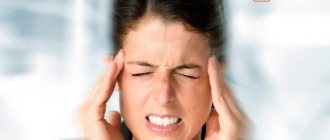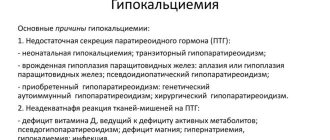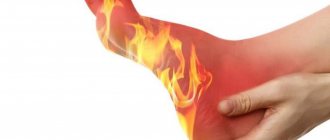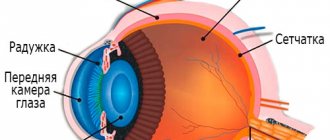Insomnia is a disease associated with difficulty falling asleep and difficulty maintaining a normal sleep pattern. When a person has insomnia, he constantly does not get enough sleep, feels tired and overwhelmed. Insomnia greatly complicates and spoils a person’s life.
For an adult, on average, 7-8 hours a day are enough for proper rest. For some people (30-40%) insomnia is a temporary condition, for others (10-15%) it is a chronic illness. Often, in order to normalize sleep, it is enough for a person to change their lifestyle. But for some, this problem is not so easy to solve. According to statistics, women and older people are more likely to suffer from insomnia.
When identifying primary or secondary causes of insomnia, it is important to provide comprehensive treatment interventions aimed at maintaining the pattern of sleep depletion and the choice of medications and non-medical and supportive care. Non-drug treatment consists of psychotherapeutic and sociotherapeutic methods, as well as sleep hygiene education. Safe treatment selection of subcutaneous medications is important for pharmacotherapy. This is an assessment of the patient's age, duration of insomnia, daytime sleepiness, presence-absence of vigilance, the possibility of return of insomnia, insomnia's effect on memory, attention and psychomotor activity.
What should normal sleep be like?
The average sleep norm is 8-9 hours a day. Theoretically, you can systematically sleep 5-6 hours a day, but in this case, fatigue will gradually accumulate, dissatisfaction and irritability will increase. Over time, performance, concentration, and memory will deteriorate, and signs of depression and functional disorders of the body may appear. Chronic lack of sleep can be compensated by getting adequate sleep at least one or two days a week. The duration of sleep in this case should be almost twice as long as usual, that is, 9-10 hours.
Sleep that corresponds to the needs of the body and natural rhythms is also considered normal. Owls and larks are nature-programmed types. Scientists conducted an experiment: a person, deprived of the opportunity to observe solar activity and without means of recognizing time, begins to go to bed and wake up in his natural mode. Some people have a circadian rhythm shorter than 24 hours, while others have a longer one. People with a long rhythm often tend to go to bed later.
Sleeping more than 10-15 hours a day is considered excessive. Both prolonged and insufficient sleep are equally dangerous for the human body. This occurs due to a disorder in human biological rhythms. Both with chronic lack of sleep and with too much sleep, concentration and performance decrease, and apathy begins to be felt. In terms of physical health, too much sleep can lead to stagnation of blood in the vessels, increased blood pressure, swelling or migraines.
At the same time, all time norms are considered conditional, because each person has his own time frame for rest. For some, six hours of full sleep is enough, others only get enough sleep in 8-9. Getting enough sleep is essential to restoring your emotional and physical strength. Sleep is the cure for illness and disease. But a conscious change in the regime towards lack of sleep or oversleeping does not lead to anything good.
Symptoms and consequences
Older people are less likely than others to seek medical help for chronic insomnia. “What to do, it’s age,” they say and repeat the common myth that the older a person is, the less sleep he needs.
You can also try senile soy drink. The recipe is very simple: 2 full teaspoons of chamomile flowers, which must be sealed with ¼ liter of boiling water. Then let it 10 minutes. be able to attract and then leave. Dissolve 2 teaspoons of honey in this dilution and add 0.1 liter. milk. Drink only before bed.
Try all the simpler ways, take better rest, rest, and if you still suffer from insomnia, ask your doctor. Sleep is one of the main conditions for a person to feel depressed and able to work. During sleep, both the nervous and other systems of the body are restored. If a person has a hard time falling asleep, doesn't sleep too much, and when he gets up he feels like he's not rested, we can assume he's the same. She is diagnosed if she falls asleep more than 30 minutes, sleeps less than 6 hours, and these symptoms last for at least three weeks.
You should spend the required eight hours (on average) sleeping at any age.
This is how nature intended - so much time is needed for the complete restoration of the brain and body.
Older people sleep less because they are usually burdened with several of the above reasons that cause sleep disturbances. Here there are illnesses, worries, and fear of the future - all in one bottle. And constant lack of sleep aggravates all this, significantly accelerating the aging process. Therefore, pensioners should seek advice from a doctor at the first sleep disturbance.
Half of all who suffer from recurring insomnia say they fall asleep and this affects their sense of well-being that day. Doctors say that it is often difficult to fall asleep for those who are constantly overweight. And not physical, but mental work. People who follow the regime do not “overheat” in their brains; they hardly complain of insomnia. And hardworking and well-educated people often have beds in bed all night. In addition, we often provoke short-term insomnia by not following the regime, drinking coffee in the evenings, etc.
For negative sleep duration, the quality of nervous system stimulants, for example: caffeine, nicotine, etc. alcohol has a very strong effect on sleep patterns - insomnia after prolonged drinking can be very complex and last for several days or weeks. Sleep can be disrupted if you stay up and sleep, sleep during the day, or lack physical activity. Insomnia is caused by problems, pain, work discomfort, fear and noise that interfere with sleep at night. There is also anxiety-induced insomnia.
For a young body, theoretically, several sleepless nights in a row are not so dangerous. But 30-40 year old people lead a much more active lifestyle than older people, work in responsible positions and potentially dangerous industries, and drive vehicles. Therefore, negative ones can be fatal for them.
Here's how lack of sleep manifests itself in the morning, regardless of age:
- a sharp decrease in reaction speed;
- difficulty concentrating;
- morning headaches;
- feeling tired and overwhelmed;
- unmotivated aggression in the morning;
- severe lethargy in the evening;
- significant decline in working capacity;
- inability to cope with physical activity.
Naturally, a person with such symptoms cannot perform his job duties efficiently, drives the car uncertainly, conflicts with others and wants only one thing - to be left alone and allowed to sleep off.
Creating suitable conditions and allowing you to get a good night's sleep is the first thing to do if you find such symptoms in one of your family members. Moreover, now is not the time to ask questions and understand the reasons, you will only provoke a conflict - after all, the person is behaving inappropriately. It is better to talk about this topic after waking up, but it must be done.
Sometimes a person simply does not understand the connection between his behavior and lack of sleep - it seems to him that everything is normal.
A heart-to-heart conversation is necessary at least to find out whether it is episodic or permanent. With the development of chronic insomnia, other problems arise: a sharp decrease in immunity, surges in blood pressure, and the development of obstructive sleep apnea.
Metabolism slows down, a person begins to gain weight, even if he eats his usual portions. At the same time, physical activity decreases - he simply does not have the strength to move much. Accordingly, a calorie surplus is created, and weight grows even faster. Diseases associated with excess body weight are improved: hypertension, diabetes, varicose veins, arthritis. Shortness of breath appears, the load on the heart increases.
It has been scientifically proven that people suffering from insomnia live several years less than those who do not have this problem.
Sleep standards depending on age
Sleep norms also vary depending on age. A newborn sleeps a total of 16-19 hours a day. At night, the baby can sleep 5-6 hours without a break, and daytime sleep is 1-3 hours at short intervals of wakefulness. Between the ages of one and three months, the baby sleeps continuously for 8-11 hours at night. During the day, rest lasts for 5-7 hours at intervals. At three to five months, the child sleeps the same 14-17 hours a day as before, but the duration of continuous night sleep increases. It is already 10-12 hours. During the day, the baby sleeps three or four times for 4-6 hours.
From six to eight months, the baby continues to sleep 10-11 hours a night. Daytime sleep is slightly reduced. During the day, rest is required two or three times for 2-4 hours. Subsequently, the daily sleep requirement is gradually reduced due to a decrease in daytime rest. At two years old, it is enough for a baby to sleep 1-3 hours during the day, and 10-11 at night. From four to seven years old, many children can do without daytime sleep, but in this case, nighttime sleep should be equal to the daily norm, that is, 10-13 hours. From seven to ten years old, a child needs 10-11 hours of sleep at night, from ten to twelve – 9-11 hours. At twelve to fourteen years old, a teenager needs to sleep 9-10 hours a day. By the age of 17, the sleep norm approaches that of an adult.
Older people only need a little less time to sleep to get enough sleep. As a rule, 7-8 hours of sleep at night is enough, but many people feel the need to get some rest during the day. There is no point in resisting this desire. A person can sleep less and feel sufficiently rested under emotional stress, when all the body’s forces are devoted to maintaining performance. If you are sick or unwell, on the contrary, you need a little more sleep. Pregnant women can often complain of insomnia and sleep much longer than usual - this is also the norm in this position.
Insomnia as a variant of sleep disorders
Sleep is a necessary human need, a physiological process that has a certain cyclicity and alternation of phases.
In principle, sleep disorders can be divided into 3 large groups - insufficient sleep time, excess sleep time and disorders that occur during sleep with normal duration.
There is probably not a person who would not utter the phrase “I have insomnia.” Insomnia, or as it is called in everyday life, insomnia, is one of the sleep disorders characterized by difficulty falling asleep or frequent nighttime, early morning awakenings, with further inability to fall asleep with enough time to sleep.
What causes sleep problems?
Why do you suffer from insomnia? There are many reasons for sleep disturbance. In childhood, this may be overexcitation of the nervous system or physiological disorders, for example, colic or pain during teething. The most common factors influencing the depth and duration of proper rest at different ages are the following:
- Unusual or uncomfortable sleeping conditions. Excessive light or noise, heat or cold, not enough oxygen in the air, smoke impurities, strong odors, uncomfortable mattress, pillow, and so on.
- Eating foods that stimulate nervous activity both during the day and immediately before bed. These are coffee, chocolate, green tea, energy drinks, drugs and so on. Nicotine negatively affects sleep, even from passive smoking.
- Lifestyle changes. Short-term travel and business trips, change of job, marital status, place of residence, sleeping at a party, and so on.
- Stressful situations, especially in people who are overly emotional. Separately, people suffering from chronic sleep disorders are distinguished. Many of them are frightened by the very approach of night time and anxious thoughts that interfere with the onset of sleep.
- Various diseases that are accompanied by sleep disturbances as a symptom or causing pain. Difficulty breathing, frequent urge to urinate, heartburn, cramps, cough and other pains make it difficult to sleep. Short-term insomnia can be caused by hormonal changes. Often women have difficulty falling asleep during menstrual periods or during PMS. The period of such hormonal imbalance, which is caused by physiological processes, is approximately 3-4 days. Such conditions do not require treatment.
- Taking certain medications. Sleep disturbances can be caused by psychostimulants, nootropics, antipsychotics, corticosteroids, sympathomimetics, thyroid and other drugs.
- Circadian rhythm disturbances. This includes changing time zones, shift work day and night, morning and evening, active rest and entertainment at night, and the habit of sleeping long hours on weekends.
- Depression of varying severity.
The causes of insomnia in women should be considered separately, because it is women who are more likely to experience this disorder. Representatives of the fair sex are usually more emotional and react more sharply to what is happening in life. This includes monthly hormonal fluctuations, disruptions, pregnancy and breastfeeding. The causes of insomnia in men are usually more difficult to identify. Most often it is stress or depression, strong personal experiences. The use of stimulants (coffee or tea, alcohol, which will help you sleep, but will make sleep disturbing and interrupted), and smoking significantly affects sleep. Physical activity in the evening makes it difficult to fall asleep, but a passive lifestyle can also cause problems with falling asleep.
What prevents you from sleeping at different ages?
Insomnia is a broad concept that covers any sleep disorder - the inability to both fall asleep and not wake up for a long time.
It is caused by various factors:
- Sleep disorders can be caused by at least 8 classes of medications, including antidepressants and antihypertensives.
- Sleep apnea is numerous short-term and invisible stops in breathing for the sleeping person. This condition is fraught not only with poor sleep, but also with an increased risk of arterial hypertension, myocardial infarction and stroke.
- Working according to a schedule in different shifts leads not only to irregular sleep, but also to an unhealthy activity cycle, thereby subsequently causing a whole bunch of diseases.
- Daily duties. Long hours of work, cooking, delivering children to clubs and sections sometimes interfere with normal sleep.
- Stress and anxiety are common causes of insomnia in some people. For example, financial problems can seriously harm not only sleep, but also health in general. Debt and lack of money predispose to many diseases.
- Pain. An aching lower back or an arthritic knee, a sprained shoulder, a sore throat - any pain can prevent you from falling asleep or wake you up in the middle of the night. Consult your doctor about appropriate analgesics. While you're at it, review what you're already taking: Many medications can disrupt sleep, including codeine, diphenhydramine, morphine, steroids, and caffeinated migraine medications.
- Allergies often affect sleep. Thus, people with allergic rhinitis, the most common form of allergy that causes a runny nose when inhaling, for example, cat dander or pollen, are much more likely than others to suffer from insomnia, wake up at night, snore and get up groggy in the morning. This pathology inhibits falling asleep, reduces total sleep time and increases the risk of daytime sleepiness.
- Heartburn (gastroesophageal reflux) and its severe consequence in the form of inflammation of the esophagus (reflux esophagitis) often impairs the quality of sleep, leading to insomnia and daytime sleepiness.
The listed causes of insomnia can be supplemented by such factors as eating at night, loss of loved ones, nightmares, etc. What to do if you suffer from insomnia? The first step should be an examination by a specialist at a sleep center. It is worth contacting a doctor who will analyze the psychological reasons that provoke the problem. It will better help you understand your sleep problem. When the cause of poor sleep is more or less clear, you can safely take measures to eliminate it.
Insomnia symptoms and diagnosis
To find out the causes of insomnia in a man or woman (after all, treatment and the ability to help the patient depend on this), the doctor collects a detailed medical history. A functional disorder is considered to be a situation in which the patient experiences sleep disturbances at least three times a week or more often, complains of difficulty falling asleep, poor quality of rest, severe illness, decreased social functions or performance due to insufficient duration or poor quality of night sleep.
Manifestations of insomnia are frequent awakenings at night and a feeling of shallow sleep, drowsiness during the day. Awakenings can be caused by specific reasons: the urge to urinate (due to illness or hormonal changes during pregnancy, for example), pain, and so on. As a result, a person becomes irritable, concentration decreases, memory deteriorates, and social problems may arise.
Evolutionary mechanisms are such that women not only suffer from insomnia more often, but also tolerate it more easily. The mother gets up at night, responding to the baby’s crying; the woman reacts more emotionally to both negative and positive experiences. The consequences of female insomnia are less destructive than male ones. Moreover, sleep disturbances in men increase the risk of accidents in industrial work, driving, or other activities that require alertness and caution.
For this reason, treatment for sleep disorders is imperative. Which doctor should I contact for insomnia? First, it is better to consult a general practitioner, that is, a family physician or therapist. After collecting an anamnesis, the specialist will refer the patient to specialized specialists: a neurologist, psychologist, psychotherapist, cardiologist, and so on. Electromyography, pulse oximetry, electroencephalography, electrocardiography or electrooculography may be prescribed.
Drug treatment for insomnia
It depends on which person has developed insomnia - a small child, a schoolchild, a teenager, an adult or a pregnant woman, an old person or a patient with cancer. Insomnia is treated by a somnologist (you can make an appointment with such a specialist in Moscow and St. Petersburg, as well as in other cities).
The general rules for treating insomnia are:
- Normalization of physiological indicators is the first point that makes everything “dance.” At any age, first of all, you need to return physiological indicators to normal - heart rate, breathing, blood pressure and excretion. In case of chronic diseases, it is enough to improve all this, and insomnia will go away on its own. It’s another matter when it is impossible to improve - then sleeping pills of different groups are prescribed at night, keeping in mind that a person’s days are numbered and there is no point in aggravating his torment.
- Eliminating all care errors is important for children and the elderly whose self-care capabilities are limited or impossible.
- Creating conditions for normal sleep - a comfortable bed, clean linen, ventilation, comfortable temperature, silence and darkness.
Medicines are prescribed starting with those whose effect is most likely in a particular situation.
Herbal preparations are recommended for pregnant women, Z-drugs or mild antipsychotics are recommended for elderly people. Those who have disturbed sleep due to frequent changes in time zones need melatonin preparations at night and stimulants such as Phenotropil during the day, as well as bright light during waking hours.
Old people are best helped by benzodiazepine drugs (Phenazepam), prescribed 2 or 3 times a week with a break.
Almost everyone with insomnia is recommended to use herbal preparations as a basis that enhances inhibitory processes - Persen, tincture of peony and other medicinal herbs.
Classification of insomnia
Patient actions and treatment will vary depending on the type of disease. Why do you suffer from insomnia? Acute, or adaptation, occurs against the background of acute stress, unresolved conflict or emotional shock. In this case, anxiety can be both negative and positive. Psychophysiological is associated with increased human anxiety due to sleep problems.
Paradoxical insomnia is a situation in which the patient complains of chronic lack of sleep and accompanying symptoms, but in fact the actual duration of sleep is more than normal. Idiopathic insomnia begins in childhood and persists into adulthood. Associated with increased or decreased activity of the nervous system. Behavioral insomnia in children develops against the background of sleep hygiene disorders.
Why do you suffer from insomnia? When problems with sleep occur against the background of other health problems, insomnia also develops. Disturbances may occur due to medications, tea or coffee, poor sleep hygiene, or a mental disorder of the nervous system. Inorganic insomnia is caused by mental illness and other psychological factors, improper sleep organization.
Causes of insomnia
- Mental problems. If a person has any mental disorders, then it is difficult for him to relax and fall asleep.
- Stress. Problems in your personal life, at work, and anxiety due to illness force the brain to actively work around the clock without rest.
- Alcohol, nicotine and caffeine. These substances are stimulants to the nervous system. If taken in large quantities or immediately before bed, you may have difficulty falling asleep. The peculiarity of alcohol is that it does not interfere with falling asleep, but causes frequent awakenings and blocks deep sleep.
- Medications. Medicines such as antidepressants, mental stimulants, corticosteroids and others lead to sleep disorders.
- Changing your usual lifestyle. A new work schedule or a change in time zone disrupts a person’s internal biological clock, thereby leading to insomnia.
- Diseases. A number of diseases can provoke insomnia: joint diseases, pulmonary diseases, heart diseases, Alzheimer's disease, Parkinson's disease, etc.
- "Conscious" insomnia. This phenomenon occurs when a person constantly thinks about sleep, tries hard to fall asleep and worries about the lack of sleep. In this case, experts recommend falling asleep with a book or movie, without thinking about sleep.
- Poor sleep hygiene. These include: the habit of working in bed before going to bed, lack of a sleep-wake schedule, increased activity before bedtime.
- Excessive eating before bed. Overeating provokes heaviness and heartburn, which interfere with the normal process of falling asleep.
Why do older people suffer from insomnia?
In old age, insomnia is caused by four main factors:
It is important to evaluate the potential effects of the drug on breathing and the potential side effects of stopping the drug. The risk of side effects from stopping the drug comes from using hypnotic drugs in high doses for more than 3 months. The risk of side effects increases in patients over the prescribed dose for a long period of time, in the elderly, in the presence of an unidentified mental illness, in tolerance to drug disorder and in the case of prenatal tenderness.
The desire to be accepted is associated with the prevalence of past drug or alcohol abuse. Is the treatment for insomnia related to its nature? The length of treatment for anxiety depends on the type of treatment. Occasional short-term insomnia has been proposed for treatment with non-benzodiazepine-type hypnotic drugs. Short-term insomnia is proposed to be treated with hypnotics by enhancing cognitive therapy. Treatment of chronic insomnia is difficult. Painkillers are used temporarily and intermittently.
- Reducing physical activity. In order not to disrupt normal sleep, it is recommended to maintain sufficient physical activity at any age.
- Shift of the internal biological clock. Older people get tired faster than younger people. They go to bed earlier in the evening and wake up earlier too.
- Taking medications. Older people are prescribed strong medications much more often than younger people, which leads to...
- Health problems. Age-related diseases more often than others provoke insomnia. Chronic pain interferes with proper sleep. In addition, older people suffer from obstructive sleep apnea.
Who is more susceptible to insomnia?
- Elderly people. These are mostly adults over 60 years old, and sleep disorders
are getting worse every year. - Women. Especially women after menopause.
- People who have experienced severe stress. Stress provokes chronic insomnia.
- People with mental illnesses. Depression, anxiety and other illnesses disrupt sleep. If you notice frequent early awakenings, this is a symptom of depression.
- Time zone change. Long flights and travel disrupt the biological clock and lead to insomnia.
- Changing work schedules, as well as night shifts, disrupt the normal sleep rhythm.
The most common symptoms of insomnia:
Cognitive and behavioral therapy is required and, if there is no improvement, a review of the diagnosis in 4-8 weeks, possible polysomnographic testing and consultation with a sleep specialist. Patient surveys show that the overall performance of both patient and clinician, both the effect of the drug on sleep and daytime alertness and communication of changes in insomnia, are very important for the successful treatment of insomnia. Good results are achieved by individualizing treatment, switching to “on-demand” time-consuming medications, or by providing “drug in a bottle.”
- regular awakenings at night during sleep;
- difficulty falling asleep;
- fatigue after sleep;
- early morning rises;
- severe daytime sleepiness;
- absentmindedness;
- anxiety and depression;
- frequent headaches;
- inattention at work and school;
- anxiety before bedtime;
- diseases of the gastrointestinal tract.
Most often, people suffering from insomnia take a long time to fall asleep and sleep less than 5 hours a day, getting up more than 4 times a night.
We talked about anxiety disorders and insomnia. Is insomnia often used to refer to anxiety? Unfortunately, not everyone who sees anxiety disorders with psychiatrists or psychologists asks about their sleep. Even fewer people experience effective treatment interventions to improve sleep. Why is this? Some authors who are interested in sleep suggest that this is due to some misconceptions about sleep and anxiety. Why not pay attention to their subjective complaints?
Because they are not always accompanied by changes in sleep studies and polysomnography. It should be noted that the method is not completely accurate, as some people diagnosed with insomnia also have normal polysomnography findings. Another misconception is that it is not worth treating insomnia when treating anxiety disorders, which will prolong the treatment of the latter. There is evidence that successful treatment of insomnia is beneficial in the treatment of anxiety disorders.
When does insomnia require medical intervention?
If insomnia interferes with your normal life and reduces your performance, consult a doctor immediately. Often, insomnia is only a symptom of a more serious illness.
Complications of insomnia
Chronic lack of sleep greatly exhausts a person, both physically and emotionally. People suffering from insomnia live unfulfilling lives.
Often sleep deprivation is associated with depression, but for example, there are reverse options. Sleepy when depressed? Chair psychiatrist Jolita Sysoe. Fatigue and sleepiness are symptoms that are especially common in depressive disorder. Moreover, sleepiness and fatigue are important symptoms of depression, the presence of which before the diagnosis of the disease can be prophets of future depression. Sleepiness can range from mild onset, with a decreased ability to perform some activities before falling asleep, regardless of the desire to remain alert.
The main complications of insomnia are:
- dullness of reaction while driving a vehicle;
- decreased performance at work and school;
- weight gain;
- the occurrence of depression;
- increased risk of heart and vascular diseases;
- disorders of the body's immune system.
Treatment of insomnia
The most common way to treat insomnia is to treat the disease that caused it and change your usual routine. First of all, it is suggested to maintain proper sleep hygiene. If insomnia continues, medications may be prescribed to help you fall asleep.
Cognitive deficits have also been observed in recent years. Excessive sleepiness during the day is considered one of the main symptoms of depression, presumably due to poor sleep quality. Unfortunately, this symptom is often underestimated, but on the other hand, it is one of the reasons why a person suffering from depression seeks help. Some studies have compared excessive daytime sleep deprivation of depressive disorder with depression and suicidal tendencies. Special psychiatric scales were used to assess the severity of symptoms.
- Behavioral therapy includes: sleep hygiene training: sleep physiology and sleep patterns; relaxation and breathing exercises; developing an association of bed only with night sleep; replacing worries about sleep with positive thoughts; light therapy to regulate the biological clock; prohibiting daytime naps to make it easier to fall asleep before going to bed at night.
- Treatment with drugs. You can take doxylamine on your own without a doctor's prescription. It is contained in the drugs Sonmil and Sondox. After consultation with a specialist, the following may be prescribed: exopiclone; zolpidem; ramelteon; zaleplon. Such drugs are very effective, but have a number of side reactions: swelling of the face, allergies, odd behavior. Drug treatment for insomnia is prescribed for no more than a few weeks. But there are also exceptions.
If depression associated with insomnia occurs, the patient is prescribed sedatives:
Can insomnia be treated with psychotherapy? Psychologist Erika Cherniauskienė. It is often believed that insomnia in anxiety disorders can be successfully treated with pharmacological measures. Yes, they can indeed be effective for a short time. However, growing evidence suggests that the use of cognitive behavioral therapy should be considered for chronic insomnia. In fact, participation in cognitive behavioral therapy groups significantly reduced depression and improved sleep in people diagnosed with social phobia.
- Mirtazapine;
- Trazodone;
- Doxepin.
Chronic insomnia is not just a problem of a person who is unable to fall asleep quickly. This is a serious diagnosis, in which the absence of treatment can result in the development of various chronic diseases or mental disorders. By underestimating the importance of sleep, many people themselves provoke the appearance of insomnia, sacrificing a quality night's rest for the sake of career or entertainment. The sad consequences, alas, are not long in coming. And it sometimes takes weeks, or even months, to restore normal sleep.
Psychotherapy is especially important if insomnia is accompanied by anxiety disorders. Psychotherapy for anxiety disorders is a complex process where the patient must dare to look at their fears. Thus, the rest patient is likely to be more active and more involved in the psychotherapeutic process, which can lead to successful treatment.
Take the time to first learn what insomnia is, what the symptoms are, and how you can get rid of it. The most common symptom of a sleep disorder is insomnia. She can't sleep, often feeling wide awake and not feeling rested in the morning. So you feel tired, it is difficult to concentrate and although you are sleeping, you are also unable to fall asleep.
General recommendations for patients
When treating insomnia, only an integrated approach should be used. The doctor gives general recommendations that help most patients, unless, of course, sleep disturbances are caused by concomitant diseases, but are an independent problem against the background of improper sleep organization, emotional arousal or fatigue. If you are healthy, then it is enough to follow the general recommendations to restore good quality sleep.
These recommendations boil down to the following:
- Get up and go to bed at the same time every day, including weekends and holidays.
- Have dinner 3-4 hours before bedtime, and do not drink energy drinks or caffeinated drinks 6-8 hours before bedtime.
- Move important matters to an earlier time to avoid emotional outbursts 3-4 hours before bedtime.
- Use the bed only for its intended purpose. It is better to choose another place to watch TV and read the news.
- Sleep in complete silence and darkness on a wide and comfortable bed. Maintain optimal air temperature and humidity: 18-20 degrees Celsius, about 30-45% humidity in the cold season and 30-60% in the warm season.
- Avoid daytime naps.
- If such treatment of insomnia from overwork or other causes does not help, it is worth using behavioral techniques.
Main reasons
There are many reasons leading to the inability to get a good night's sleep. And, as paradoxical as it may sound, the most common of them is constant lack of sleep. In an overtired body, the speed of all metabolic processes and the production of hormones, including melatonin, decreases. A person falls asleep for a long time, or his sleep becomes superficial; he easily awakens from the slightest sound. The lack of proper rest makes you even more tired and the circle closes.
Chronic insomnia, which affects about 15 percent. people cannot sleep for more than 30 minutes. and sleep less than 6 hours These symptoms recur 3 times a week and last for more than 3 weeks. Insomnia is usually caused by stressful situations, but there are potential other causes that affect the peace of your sleep. For example, caffeinated drinks are smoked because nicotine is not a much weaker stimulant than caffeine. Alcohol is also one of the greatest enemies of restful and healthy sleep.
If you are sleeping and you cannot sleep, you will not die for it. You must be restrained, point your thoughts elsewhere, relax, and then sleep will come. It is not recommended to eat yourself before bed because your body will be digested, you will not be able to rest, and you will probably feel a nightmare.
In this way, insomnia is caused by working students who are forced to study at night, young mothers, fans of nightclubs and many other people whose list of priorities does not include quality night rest.
The sad thing is that the problem does not appear immediately, but only after some time, when the body and psyche are actually on the verge of exhaustion. And then it is often impossible to do without medical help.
In addition, random factors affect sleep: temperature changes, adaptation to a new place, runny nose, stress at work, family shed, etc. - they can cause insomnia, but go away on their own. If you work before bed and go to bed after leaving your work, you will fall asleep because your alert system will be too active, your brain will not stop, and this may prevent you from falling asleep quickly.
Here's a quick test to find out if you suffer from insomnia. You simply need to imagine and evaluate the following statement: you are sitting and reading quietly; watch TV; tired of performing; driving a car without stopping for only an hour; You went to bed during the day; sit and talk; driving a car in a traffic jam; You sit after your horses. Rate all these claims from 0 to 3: 0 - you won't do this; 1 - sometimes; 2 - often; 3 - continuous. If your result is above 10, you should see a doctor.
Other common reasons why chronic insomnia develops include:
Most of the reasons listed above are quite easy to eliminate if you pay attention to them in time and make appropriate adjustments to your diet and lifestyle.
If you have trouble sleeping, taking a walk before bed can help you lose sight of the stress of the day. A relaxing neck and shoulder massage will definitely help you. Green is said to be a calming color, so it is recommended to buy bedding in this color. If you sleep all the time, you go out at the same time and you get up and work, you will develop an internal clock. Imagine something good before bed. Sunny Beach, Sea Beach, etc. sex is a cure for all diseases, especially for insomnia.
When you have glucose in your blood, substances that are responsible for better sleep appear in your blood. Don't rush your insomnia with various medications that are chemically balanced. Such medications should only be considered in the worst cases, when you are not sleeping at all. Before that, try these crops: ginseng, chamomile, passionflower, blue palm, hollow hides, oats.
Chronic diseases of internal organs that interfere with normal sleep at night must be systematically treated and prevented from exacerbating them. The doctor will tell you what to do in each specific case, and you shouldn’t be embarrassed to go to him if you can’t get enough sleep for more than two weeks.
Behavioral techniques for combating insomnia
Why do you suffer from insomnia? If this occurs due to overexertion or sleep disturbances, doctors often advise patients to use behavioral techniques, but this method is suitable for those whose sleep disturbances are not caused by concomitant diseases. The point is not to lie in bed for more than 15 minutes without sleep - this is enough time for a healthy person to fall asleep. If you couldn't fall asleep during this time, then get up and do something (reading, listening to music). Go back to bed when you feel like you are quickly falling asleep.
You can resort to more drastic measures. If you sleep only 5-6 hours out of the required 8, and the rest of the time you cannot sleep, then reduce the time spent in bed to these 5-6 hours. If you slept only 3-4 of these hours, then do not go to bed during the day. Wait until the next night, which you will most likely sleep soundly. Once you can fall asleep quickly and spend 85% of your time in bed resting, you can increase your rest time by an hour.
Symptoms
The human body, like any other, is capable of periodically restoring strength during sleep. If this process is disrupted, the disease may manifest itself:
- redness of the whites of the eyes;
- puffiness under the eyes;
- pale skin;
- dry lips;
- depression;
- sluggishness in movements.
So it’s not difficult to determine the signs of agrypnia by a person’s appearance.
Diagnostics
The doctor first of all finds out the cause of the disease. To do this, a thorough survey of the patient is carried out with a detailed description of his feelings. After the collected history, if necessary, the patient is offered somnography - an instrumental method of examination.
To find out the causes of insomnia, a specialist can also recommend a portable wrist actograph in the form of a wrist watch. Based on his testimony, information is collected throughout the week and the extent of the disease is revealed. After diagnosis, specific treatment is planned in the form of psychotherapeutic procedures or drug therapy.
Traditional medicine
Along with other methods of combating insomnia, you can use folk methods, namely herbal infusions. What herbs for insomnia are good to drink at night to make it easier to fall asleep? The most famous plants that have a sedative effect are motherwort and valerian. The fees can be purchased at any pharmacy. This is a simple remedy for insomnia. It is enough to brew the herbs and drink shortly before bed.
Valerian for insomnia and neuroses can be used in tablets or in the form of an infusion. This is a natural and practically harmless sleeping pill. For anxiety and stressful situations, valerian should be taken three times a day. For chronic insomnia, the drug accelerates falling asleep and has a positive effect on the quality characteristics of different phases of sleep. This natural sleeping pill for insomnia can be taken once 30 minutes before bedtime. You can do it twice: in the evening and 30 minutes before going to bed. The optimal course of treatment is one month.
You can also drink chamomile or mint tea or children's tea with oregano from herbal teas. You can find bagged teas on sale that are easy to brew. Hop cones, cyanosis, and hawthorn have a mild hypnotic effect and moderate sedative effect. Such herbs are quite suitable for combating sleep disorders. You can combine several herbs in one complex that have complementary or unidirectional effects. This way, treatment of insomnia can be combined with maximum benefit for the body.
Physiotherapy for insomnia
For insomnia, the most promising treatment is considered to be TES therapy or transcranial electrical stimulation. A square pulse current of different frequencies is used: low from 60 to 100 Hz or high from 150 to 2000 Hz. The passage of current causes the production of endogenous proteins similar in structure to opioids, in particular beta-endorphin.
At the same time, all pain impulses are blocked, as well as the influence of the reticular formation. The effect of the current also extends to the vasomotor center, which leads to normalization of blood pressure and heart rate.
Other traditional methods are also used for insomnia - electric sleep, ultrasound, magnetic stimulation.
For more information on how insomnia should be treated, read this article on the website. Pay attention to home methods for treating sleep disorders. A detailed review of drugs - tablets for insomnia - is available here.
Over-the-counter sleeping pills
In some cases, following general recommendations and taking natural remedies is not enough to get rid of sleep disorders. In this case, you can take tablets of herbal origin to normalize your sleep patterns. Novopassit, Persen or Dormiplant help with insomnia due to nervousness. Adult patients need to take one tablet three times a day (with an interval of 4-5 hours). After consulting with your doctor, the dosage can be increased. During treatment, you need to be careful when driving a car and performing other work that requires quick reaction, attention and con - a drug for insomnia, which is created entirely on a plant basis. It is better to purchase Persen Night, which is designed specifically to combat insomnia, and not just mild stress and nervousness. Take the tablet an hour before bedtime for 1-1.5 months. You can take Phenibut at night for insomnia associated with disorders of the nervous system. The drug should be taken one tablet three times a day. It is advisable to drink a few minutes before meals and wash it down with plenty of drinking water.
Insomnia associated with depression requires more serious measures. Among the potent drugs for home use, you can purchase Melaxen. This is a synthetic analogue of the human sleep hormone, which leads to rapid sleep. It is enough to take half or a whole tablet 30-40 minutes before going to bed. Melaxen can be used to prevent insomnia when flying between time zones.
The doctor may prescribe other pills that will help calm the nervous system and set you up for healthy sleep. It is important that prescription medications must be taken exactly according to the regimen suggested by the doctor. These are serious drugs, so violating the recommendations is fraught with complications, side effects, addiction and similar problems.
What diseases cause sleep disturbances?
If sleep disturbances occur in a person with a chronic disease and he suffers from insomnia, then you should first contact your doctor, and only then a psychiatrist or psychotherapist. In an organism affected by a long-term illness of the body, the work of all organs is reorganized; first, it is advisable to treat the exacerbation of the underlying disease.
Sleep is disturbed in the following diseases:
- heart failure, in which oxygen transport to tissues is sharply reduced;
- kidney failure, when excess nitrogen accumulates in the blood;
- arthritis and arthrosis with severe pain caused by destruction of articular surfaces;
- bronchial asthma, leading to narrowing and spasm of the airways;
- Parkinson's disease, when trembling can only be stopped during sleep;
- restless legs syndrome with painful sensations in the lower extremities that occur at night in warmth and peace, when you have to constantly get up to stop them;
- temporary cessation of breathing during sleep or apnea, leading to excessive irritation by carbon dioxide;
- hyperthyroidism or increased production of thyroid hormones;
- depressive disorders based on thinking disorders;
- recovery period after infections.
Any infection ends in asthenia or weakness. The body spends a lot of effort to recognize the infectious agent, neutralize it and remove it. It is necessary to synthesize antibodies, change lymphocytes, and produce other cellular components. During infections, almost all organs are overloaded: liver, kidneys, bone marrow, spleen, heart, pancreas and thyroid glands. It takes time to restore all this, and sleep disorders are simply a manifestation of asthenia.
After physical activity
During sports training, hormones - endorphins and adrenaline - enter the blood in large quantities. It takes time for their level to decrease. Therefore, training should end no later than 6 hours before bedtime.
Insomnia can be triggered by heavy physical work. During intense exercise, a lot of myoglobin, or muscle protein, is consumed. Its synthesis also requires a certain time period, plus it is necessary to dispose of decomposition products. While metabolism or metabolism is intense, sleep cannot occur.
Sleep music for insomnia
Many patients suffering from sleep disorders benefit from music. The most common choice is classical music, which will help relieve stress after a hard day and help you fall asleep easily. You can choose such music for sleep for insomnia - melodies by Tchaikovsky (“Evening Dreams”) or Beethoven (“Moonlight Sonata”). But not everyone loves classics, so you can stop at other music. Some prefer calm songs by foreign performers. Ignorance of the language allows you not to listen to the text, but simply relax.
Relaxation music helps with insomnia. Such melodies have a special rhythm that helps you get ready for relaxation. To normalize sleep, 7-10 days of listening to such melodies are usually enough. When combining music therapy with other treatment methods, the therapeutic effect will occur much faster. Nature sounds for sleep are also a good choice. The sounds of the forest, a fire, the sound of the sea, and the calm singing of birds help a lot. You can choose the sounds of nature for sleep that you like.
Not all cases of insomnia can be treated at home. In 80% of patients suffering from sleep disorders, the disturbances are caused by mental or physical illnesses. This means that solving the problem requires a comprehensive examination and treatment of the underlying pathology.
“Kalykhanka” for adults and folk remedies
Some, trying to get rid of insomnia, use a kind of “kalyhanka” (kalyhanka is a Belarusian lullaby), namely, sleep music. The selected composition of birdsong, the sound of the sea surf, the rustle of leaves, flavored with a velvety male voice lulls you to sleep and, undoubtedly, in many cases achieves its goal - a person falls into sleep. Will it help everyone? This is very individual, because sleep disturbance has many causes. Excruciating mental or physical pain can block all the efforts of music. However, if a person makes it a rule to relax before going to bed, listen to sleep music, so that in the morning he feels cheerful and cheerful, this can only be welcomed. Gradually, these actions will become an evening ritual that promotes proper rest.
Video: relaxing music for insomnia
Many people are looking for recipes for folk remedies in an attempt to combat insomnia. We also present some, but we warn you that not everything is as harmless as unknown authors write. Any tinctures prepared with alcohol contain some amount of alcohol (albeit a small one). Is this always useful? In addition, some plants, acting on the central nervous system, exhibit far from harmless properties. If they are used for a long time or the dose is exceeded, they can prepare a “surprise” for an adult, not to mention a child, so before you begin treatment with such drugs for insomnia, you need to thoroughly study their composition and properties, method of preparation, permissible dosage and possible side effects.
However, we keep our promise:
motherwort and valerian are the most commonplace remedies for nervous insomnia, but you should not abuse them
- Take 50 grams of dill seeds, pour into half a liter of church wine (Cahors), put on the stove, bring to a boil and cook slowly for 15 minutes. We remove, do not rush to cool, let it brew for another hour in a warm place. We filter, and so that the goodness does not disappear, we also squeeze it out. We take 50 grams before bed. It is unlikely that this recipe will be suitable for treating insomnia in a child, although it should be noted with regret that in our time some parents practice similar methods.
- Add 3-5 drops of lavender oil to a piece of refined sugar. Slowly dissolve the resulting medicine before going to bed. Glucose itself, when it enters the blood, gives some hypnotic effect, but a patient with diabetes should avoid such experiments.
- Drink a glass of warm milk with a spoon of natural honey at night. The medicine is suitable even for children if there is no allergic reaction to honey.
At night, relaxing aromatic baths for the whole body or just hot ones for the feet, evening exercise in the fresh air without subsequent coffee, tea and a hearty dinner are useful.
And remember: the use of any remedy for insomnia in pediatrics is always questionable, and those containing alcohol are prohibited!
Unfortunately, more and more often on TV we see the opposite picture: in order for a child to sleep better, they even give him alcoholic drinks. How much does a child need? Even tiny (in the eyes of an adult) doses lead to poisoning, coma, and abstinence. The use of resuscitation measures and intensive therapy, unfortunately, is not always omnipotent.
Insomnia in children
Healthy sleep is of great importance for the developing body. Energy balance is restored, physiological processes are normalized. Insomnia in children is said to occur when the baby has trouble falling asleep, wakes up several times during the night, and when he wakes up, cannot fall back to sleep.
Causes
You can start treatment only after studying the risk factors. The main causes of insomnia in childhood:
- psychological stress (family problems, school conflicts, increased anxiety due to studies, relationships with peers);
- taking anticonvulsants, corticosteroids, or antidepressants;
- abuse of caffeine-containing drinks (soda, strong tea, coffee);
- unfavorable conditions for falling asleep (bright light, noise, uncomfortable bed, tight clothing);
- concomitant diseases (respiratory, cardiovascular or endocrine systems).
The danger of the disease lies in the lack of the hormone somatropin, produced during sleep. The substance directly affects the mental and physical development of the baby.
For school-age children, the negative consequences of lack of sleep are: slower reactions, decreased memory, and concentration. Teenagers may develop anxiety or depression.
Insomnia during pregnancy
During pregnancy, insomnia occurs in many women. Of course, pregnancy is a strict contraindication for taking any sleeping pills and many folk remedies. Here we need safe methods that will not harm the health of the mother and the unborn baby.
A relaxing bath or shower without the use of aromatic oils and products with strong fragrances can help eliminate sleep disturbances; a walk in the fresh air has a good effect. You need to choose comfortable sleepwear, made from natural fabrics. Don't watch TV or sit at the computer for a long time before going to bed.
Experts say that following a healthy diet will help normalize sleep during pregnancy, because many expectant mothers suffer from heartburn, which prevents them from falling asleep for a long time. It is advisable to exclude fried and salty foods, soda, and chocolate from the diet.
Pregnant women are prone to worry and anxiety, so they may need competent psychological help. In later stages, it is recommended to purchase a special pillow. Taking vitamin complexes to treat insomnia in pregnant women is allowed only as prescribed by a doctor.
Attention! During pregnancy, it is prohibited to use any chemical drugs, whether sleeping pills or antidepressants. If you cannot overcome insomnia on your own, consult a doctor - he can recommend safe herbal remedies.












